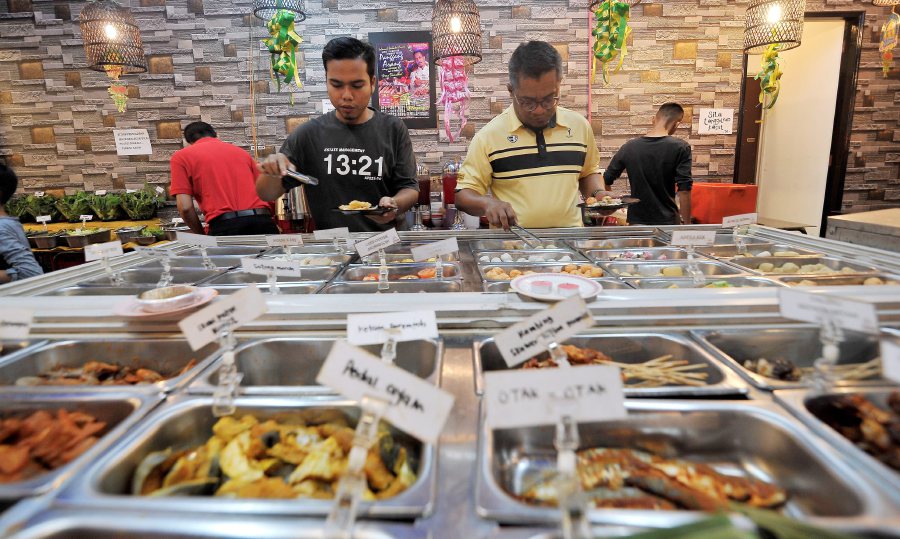GLOBALLY, 800 million out of 7.6 billion people suffer from hunger. Although the number has decreased in recent decades, roughly one in 10 people goes to bed hungry every day, many of them from developing countries.
In a tragic irony, an estimated 30 to 40 per cent of food in developed countries is lost to waste. Malaysia, a prosperous developing country itself, is not spared of this notoriety. We are touted as the most obese country in Southeast Asia. The food left-over during Ramadan every year is evidence enough of our indulgence.
Food security is a concern in Malaysia as it is everywhere. Indeed, it ranks among the world’s greatest challenges. It is ranked second among the 17 Sustainable Development Goals in the United Nations 2030 Development Agenda which proclaims, “End hunger, achieve food security and improved nutrition, and promote sustainable agriculture”.
By 2050, the world population is expected to reach 9.2 billion — meaning an additional 1.6 billion people to feed, 200 million people more than today’s population of China. To ensure food availability for everyone in 2050, the world needs to increase food production by 70 per cent. Faced with dwindling agricultural land, less water for irrigation, rising energy and labour costs, and major grain crops already reaching yield plateau, it will be a daunting task.
Under the Transformasi Nasional 2050 agenda championed by Prime Minister Datuk Seri Najib Razak, economic planners and policymakers have deliberated in great depth a wide range of issues and concerns about our food security status.
Further discussions should be welcome and continue unabated to address all issues and concerns comprehensively.
Last November, Malaysia’s National Professors Council and Indonesia’s Association of Professors convened more than 250 participants in “Forum Pertanian IPIMA 2017” (IPIMA Agriculture Forum 2017) to discuss imminent challenges and collaboration in agriculture, which also highlighted the bilateral food security issues.
Equally commendable, Universiti Putra Malaysia Alumni Association, under the able leadership of Perlis royal Datuk Seri DiRaja Syed Razlan Syed Putra Jamalulaill, organised a seminar on Agriculture and Food Security 2050 last month, engaging distinguished agricultural practitioners, both active and retired, to reflect on our future food security.
Will Malaysia prevail to meet these challenges by 2050? By then, it is expected that Malaysia will have added 9.7 million to its present population of 31 million. In 2015, food import bills hit RM45.4 billion, while exports were RM27 billion, giving a deficit of over RM18 billion. If such a trend persists, Malaysia is likely to face a food crisis in the future.
We may be able to grow or produce food locally at high self-sufficiency levels, but that does not mean the country has attained the desired food security status.
Food security is defined by the Food and Agriculture Organisation as “when all people at all times have physical, social and economic access to sufficient safe and nutritious food preferences for an active and healthy life”.
In 2013, the International Conference on Food Security deemed food security as a multifaceted issue with four dimensions: availability, access, utilisation and stability. This led to the establishment of the Global Food Security Index (GFSI).
The GFSI informs food systems around the world with a common framework for understanding the root causes and risks of food insecurity, at the core of which are affordability, availability, quality and safety.
Thus, GFSI provides a measure of food security at country level, as influenced by culture, environment and geographic location.
Last year, Malaysia ranked 41st with a GFSI score of 66.2, while Singapore was 4th with 84. Thailand, the Philippines and Myanmar ranked 55th, 79th, and 80th, with scores of 58.5, 47.3 and 44.8, respectively.
About 60 per cent of 113 countries experienced declines in food security scores last year compared with 2016. Malaysia declined by 3.2 points, followed by Philippines, Myanmar, Thailand, and Singapore by 1.0, 0.7, 0.7 and 0.6, respectively.
When natural resources and resilience are factored into the GFSI, Singapore drops 15 ranks, from 4th to 19th (49.2) because of the dependence on food imports and its susceptibility to environment-related events.
However, Malaysia drops only two spots in rank (52.1), largely due to lower dependency on food imports.
Universiti Putra Malaysia Adjunct Professor Dr Heong Kong Luen carried out an analysis of countries with high and low GFSI scores, and pointed out major issues that drag down Malaysia’s and other Asean countries’ scores seem to be related to quality and safety.
The quality and safety index for Malaysia is 71.1, compared with scores of France, Australia, and Singapore of 88.7, 86.4, and 78.3, respectively. Thailand, Philippines, Indonesia and Laos record much lower scores of 56.8, 54.0, 44.1 and 31.0, respectively.
One concern Malaysia and some Asean countries may immediately address is the overuse and misuse of pesticides.
Studies in Indonesia and Vietnam find that heavy use of pesticides in rice production did not translate into yield increases.
It is timely to review our approach to sustainable agriculture using science and modern technologies in addition to taking into account the role of traditional knowledge.
Also, we need to learn and apply valuable lessons from many case studies worldwide of successful efforts to stem and reverse land degradation and biodiversity loss, the subject of major reports to be launched next month by the Intergovernmental Science-Policy Platform on Biodiversity and Ecosystem Services.
A more environment-friendly agriculture landscape would enhance Malaysia’s score on the global food security index.
zakri@pmo.gov.my
Twitter: @ZakriZAH
The writer is science adviser to the prime minister and chairman,
National Professors Council
News Straits Times.
Retrieved from https://www.nst.com.my/opinion/columnists/2018/02/336821/sustainability-2050-food-challenge

